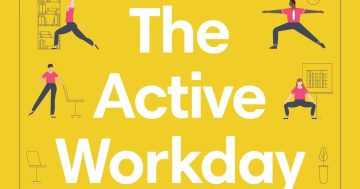Gretchen Rubin* has some advice for those who have difficulty slipping into a productive morning routine.
 My sister Elizabeth calls me a “happiness bully,” and I have to admit I do often quiz people about what happiness habits they’d like to master.
My sister Elizabeth calls me a “happiness bully,” and I have to admit I do often quiz people about what happiness habits they’d like to master.
Over and over, people have told me: “I really want to develop a good morning routine, but I can’t get it to stick.”
That frustration often arises from the fact we don’t have complete control over our lives.
If you’re managing your family’s morning, or dealing with an unpredictable work schedule, it can be very tough to establish a solid routine. That’s reality.
However, sometimes we can’t stick to a morning routine because we need to work harder on setting ourselves up for success.
While we may not have complete control, we may have more control than we realise.
Here are some suggestions to keep in mind.
Break your morning routine into concrete, manageable actions.
An example might look like this: Wake up at 7am, and hit the snooze alarm only once.
Do a 10-minute meditation after getting dressed.
Wake up the kids at 7:45am.
Cook a hot breakfast and eat as a family Monday-to-Thursday.
Then take steps to solidify each individual habit.
One powerful strategy is the Strategy of Monitoring, where you keep track each day of whether you’ve successfully completed that part of your morning routine.
Monitoring has an almost uncanny power.
It doesn’t require change, but it often leads to change, because people who keep close track of just about anything tend to do a better job of managing it.
Tracking boosts self-control in key categories such as eating, drinking, exercising, working, television and internet use, spending — just about anything.
Use the Four Tendencies personality framework to help you stick to your routine.
To you tend to be an Upholder, Questioner, Obliger, or Rebel?
Upholders: Make a morning to-do list and put items on the calendar.
Questioners: Create the most efficient and customised routine possible, and remind yourself about why this routine works so well for you.
Obligers: Remind yourself that if you keep your morning routine, you’ll help others keep their morning routines.
Or think of your duty to your future-self, who will be so happy to start each day with a strong routine.
Or create ways that you’re accountable to others; for instance, instead of taking a morning walk alone, walk with a neighbour.
Rebels: You might not want to lock yourself into a specific routine.
Think about what you want from your mornings, and let your actions flow from your desires.
Think about your identity and the routines that support and naturally flow from that identity (an athlete, a nature-lover, a thoughtful parent, an artist).
Use self-knowledge.
People often try to apply one-size-fits-all solutions for happiness and habit-formation, and they get frustrated when those solutions don’t work.
If you’re having trouble keeping a morning routine, try to know yourself better, and to adapt the routine to suit you. No tool fits every hand.
For instance, if you are a night person, you’re at your most creative, energetic, and productive later in the day.
If you try to do something strenuous — doing a tough work-out, working on a novel — early in the day, it will be tough. Try moving that aim to later in the day.
Do you simply need more time?
Sometimes we’re just trying to cram too many items into the morning routine.
For most of us, a lot needs to get done in the first few hours of the day, and it’s important to be realistic.
Many people wouldn’t welcome the suggestion to get up earlier, but for some people, it’s an option.
Can you move some tasks out of the morning, to make the morning routine less onerous?
You might do a better job of keeping your morning routine if you work on your evening routine.
For instance, if you or others need to take things to work or school, get materials organised the night before; assemble lunches and choose outfits.
Identify the problem.
Are there problems that repeatedly crop up to disrupt your morning routine?
Do you regularly sleep through the alarm, hunt for your keys, scramble to put together an outfit, lose track of time?
Identify the problem, and figure out a way to address it.
Many of us are in a period of our lives when we just don’t have the well-oiled machine running the way we’d like.
If that description applies to you, remember that things change. The days are long, but the years are short.
*Gretchen Rubin is the author of the New York Times bestsellers, Better Than Before, The Happiness Project, and Happier at Home. She can be followed on Twitter @gretchenrubin.
This article first appeared on Gretchen’s blogsite.











